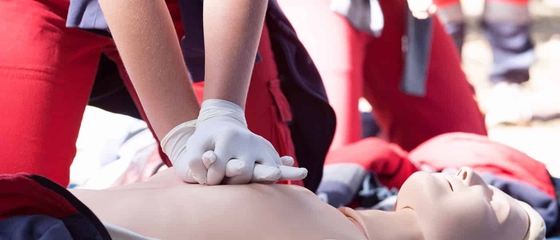Manual pressure augmentation in defibrillation of ventricular arrhythmias (AUGMENT RCT)
/
Manual pressure augmentation in defibrillation of ventricular arrhythmias (AUGMENT RCT)
Associate Professor Dion Stub, Monash University
2022 Vanguard Grant
Years funded: 2023-2024
In patients suffering from out-of-hospital cardiac arrest, timely successful defibrillation is critical to survival.
We plan to assess a technique called manual pressure augmentation (MPA), whereby operators wearing latex gloves push down on the sternal and apical patches at the time of energy delivery ('hands on defibrillation') in the cardiac arrest setting. This has been shown to be more effective in non-cardiac arrest settings.
We perfomed a benchtop study and pilot trial indicating MPA to be safe and effective. We plan to run a world first randomised controlled trial of cardiac arrest patients that compares MPA with standard ('hands off') defibrillation. We hope to show that manual pressure augmentation is a superior approach associated with improved efficacy and survival to hospital discharge.
This study has the potential to change clinical practice for resuscitation of both in-hospital and out-of-hospital cardiac arrest worldwide and, if positive, would be incorporated into international Advanced Cardiac Life Support guidelines
You might also be interested in...

Staying alive: a history of CPR
In the event of a cardiac arrest, time is of the essence. Lifesaving interventions can often literally be the difference between life and death.

Applying for research funding with the Heart Foundation
New funding opportunities for 2026 are now available. Learn more about our funding programs, requirements, and application dates now.

$13.9 million for heart research in Australia
Supporting 73 new groundbreaking research projects that leverage Australia’s scientific expertise to save more lives from cardiovascular disease.
Last updated13 March 2024